COVID-19 in MN: Trends point to crest in summer-fall wave

Go Deeper.
Create an account or log in to save stories.
Like this?
Thanks for liking this story! We have added it to a list of your favorite stories.
3 things to know:
2,150 newly confirmed or probable cases, 22 newly reported deaths
19,646 known, active cases; 915 currently hospitalized
74.4 percent of 16-and-older residents with at least one vaccine dose
Updated 12:20 p.m.
Minnesota’s COVID-19 numbers this week continue to signal the worst of the current surge may be over. New cases, hospitalizations and the positive test rate are all trending lower than two weeks ago — the first time that’s happened since July.
Known, active cases came in at 19,646 Friday, slightly higher than the prior day but still lower than the past three Fridays. The seven-day average of newly reported cases fell to its lowest point since September.
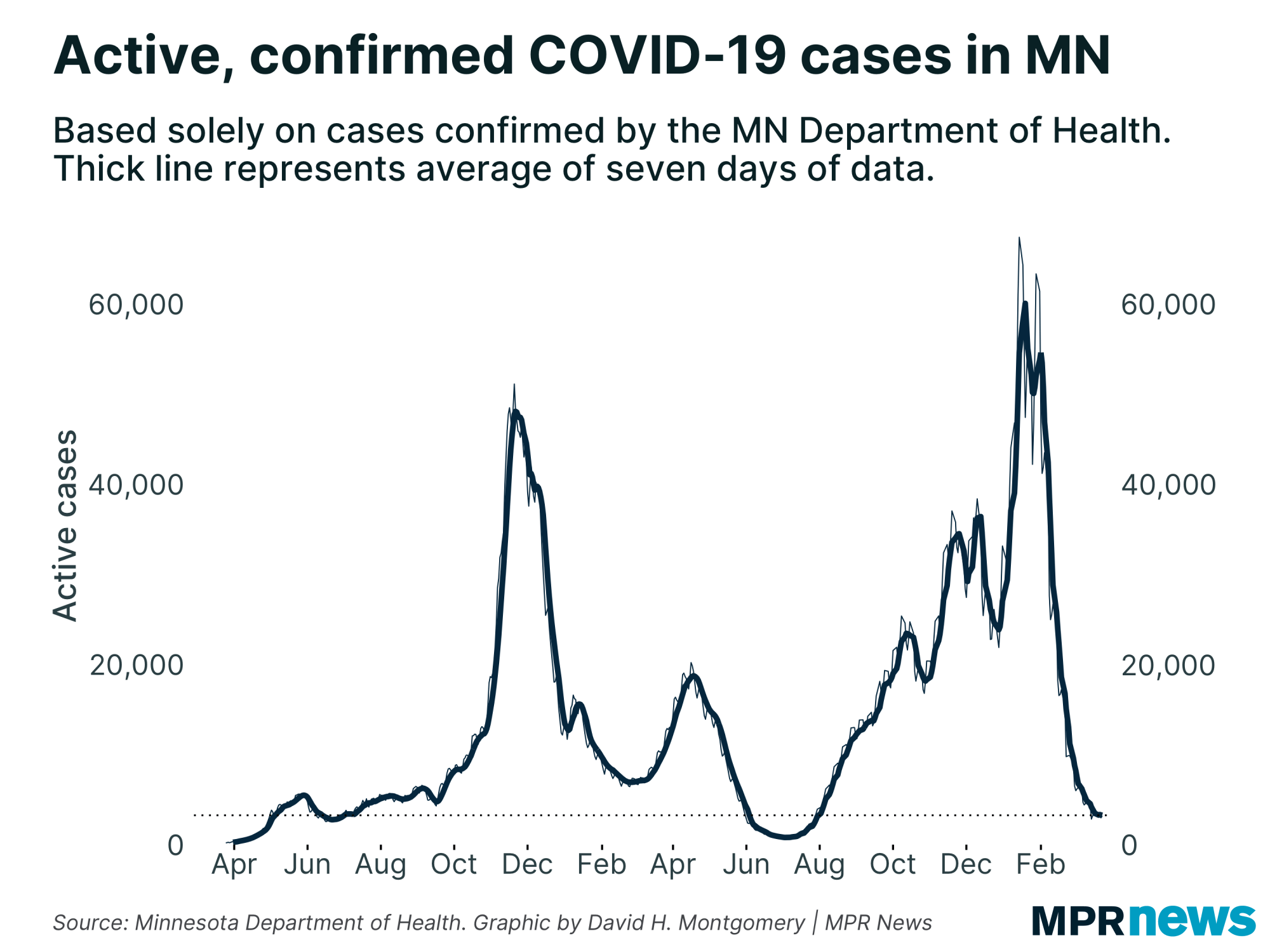
The rate of COVID tests coming back positive has stabilized in the mid-6 percent range, according to MPR News calculations — higher than the 5 percent officials find concerning but still hovering near its October low with no signs of a spike.
Hospitalizations continue to pull back from their recent highs.
Turn Up Your Support
MPR News helps you turn down the noise and build shared understanding. Turn up your support for this public resource and keep trusted journalism accessible to all.
Bed counts had topped 1,000 earlier this month, putting huge pressure on the state’s short-staffed care systems, but hospitalizations have dipped in reports posted through the week. There are 915 people in Minnesota hospitals now with COVID; 223 need intensive care.
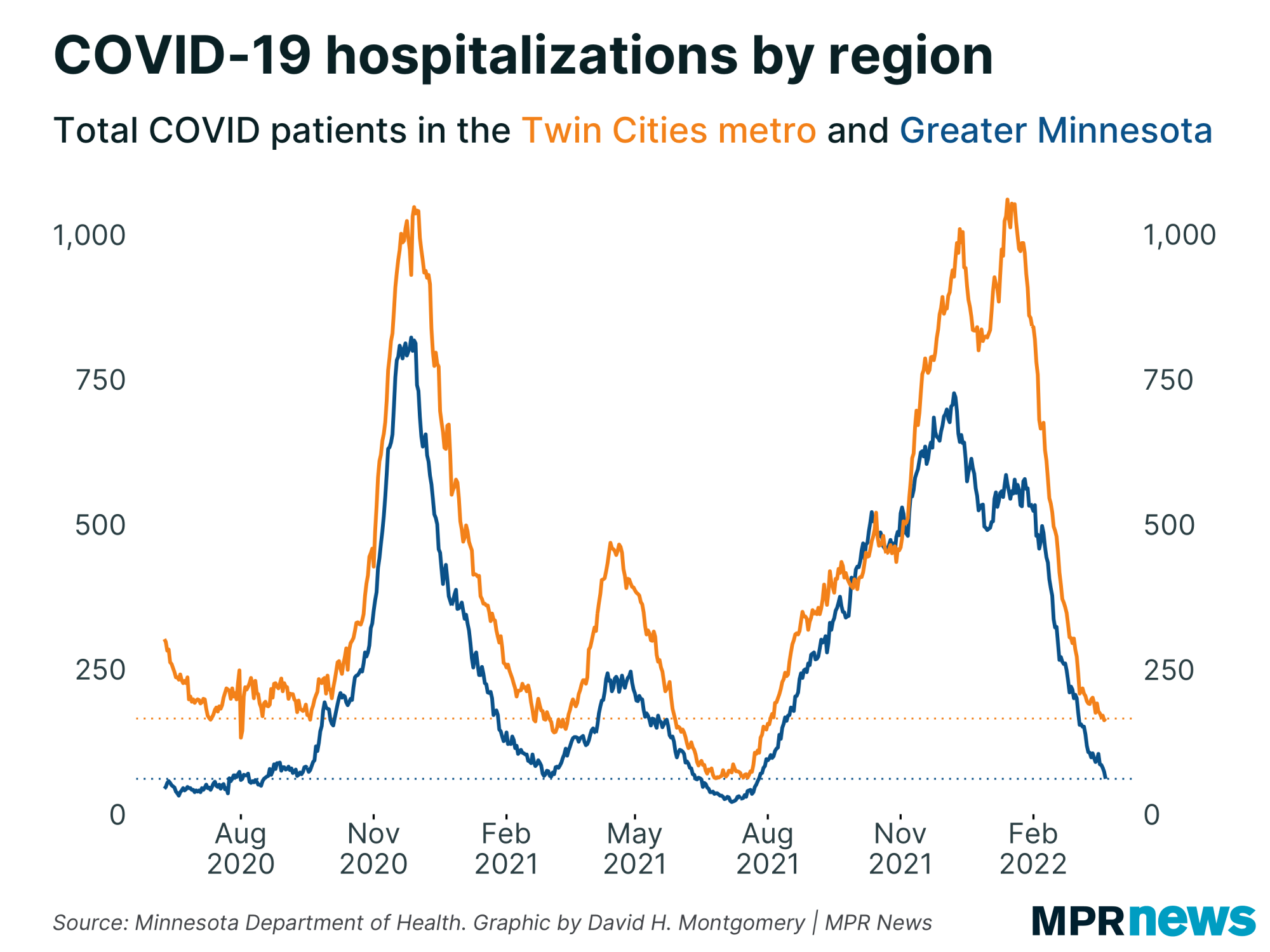
State public health leaders continue to emphasize that Minnesota’s COVID numbers are still relatively high and the state is not out of the woods yet. They continue to plead with Minnesotans to stay vigilant against the disease and get vaccinated if eligible.
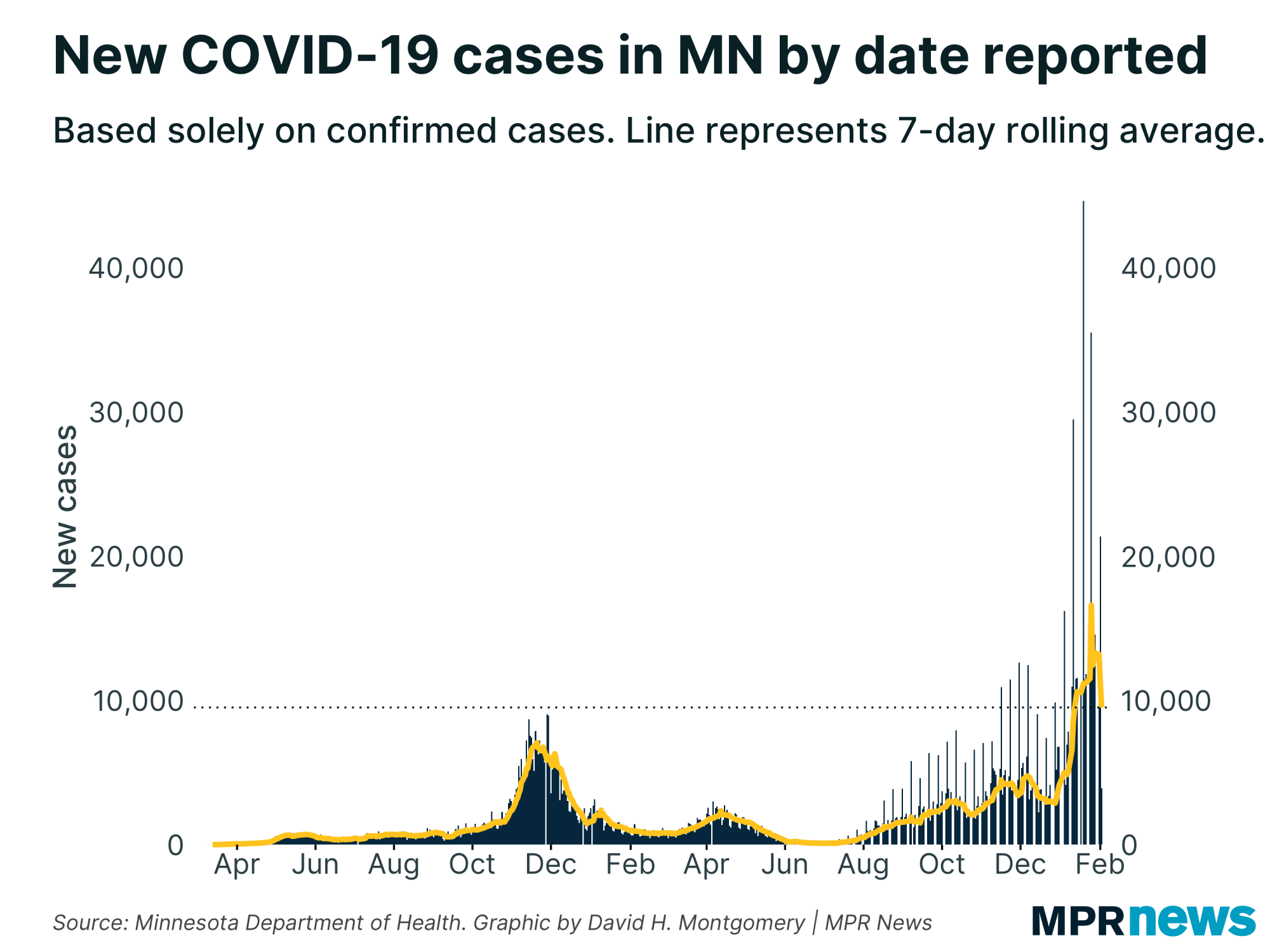
It’s “absolutely” possible the state may get hit with a fifth wave of COVID-19, Michael Osterholm, director of the University of Minnesota’s Center for Infectious Disease Research and Policy, told MPR News on Monday.
Driven by the highly contagious delta variant, the entire state now shows a high level of COVID-19 transmission, according to the Centers for Disease Control and Prevention.
Confirmed cases, though, have declined over the past week in every region.
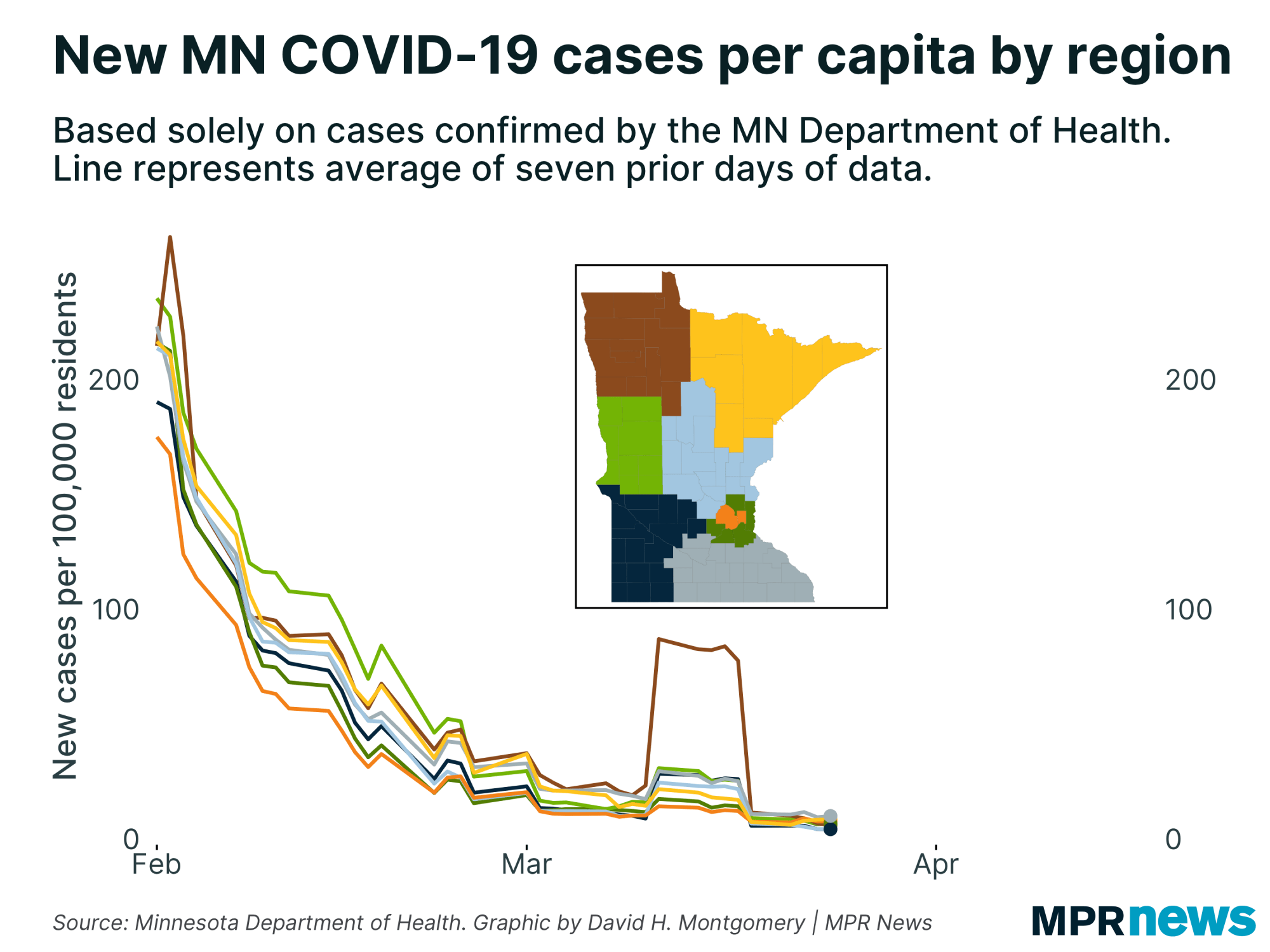
The numbers have are also dropping across racial and ethnic groups, including a big drop in cases among Indigenous communities that have struggled recently with a huge surge.
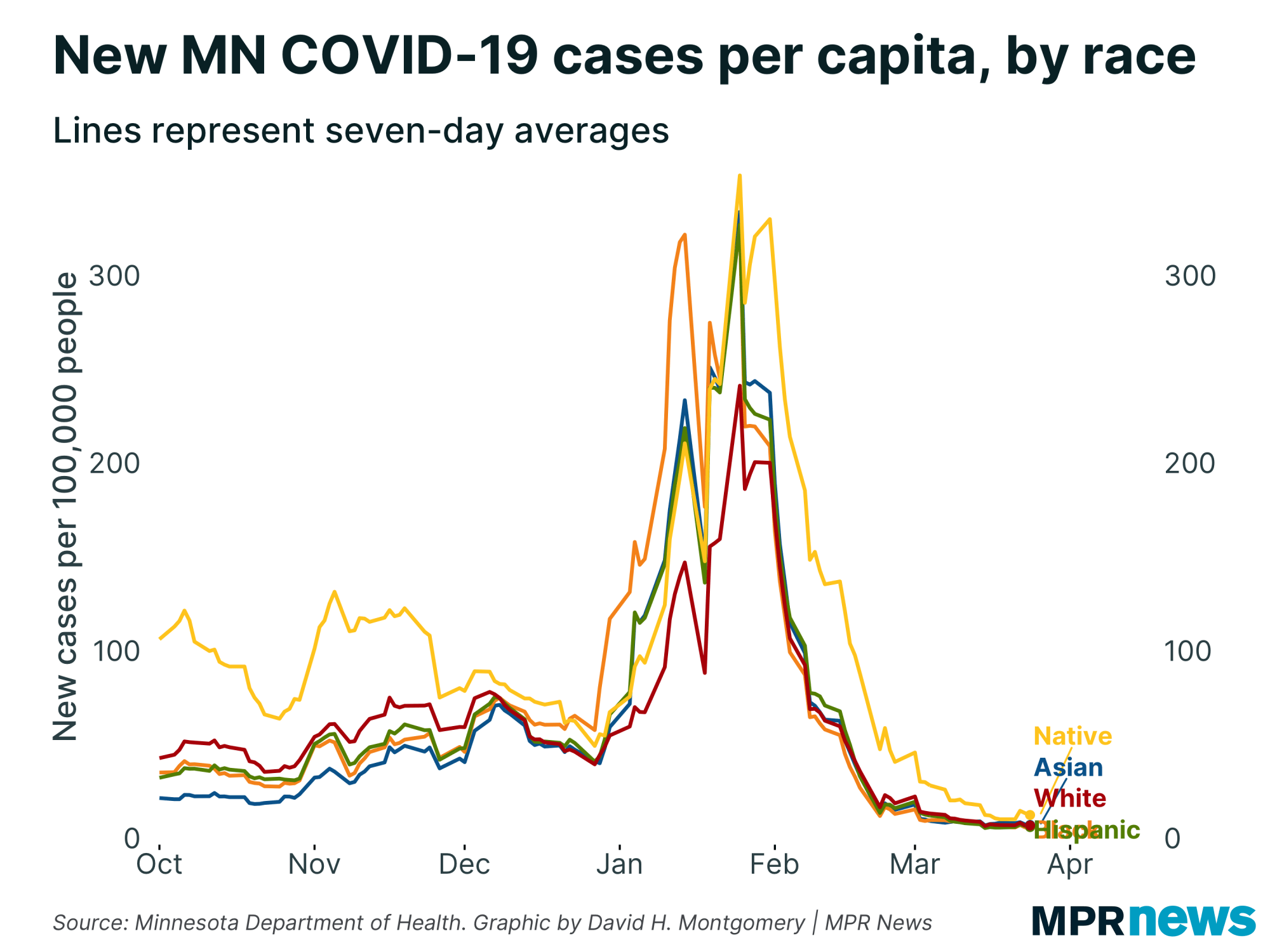
The state's death toll stands at 8,537, including 22 deaths newly reported on Friday. Deaths typically follow a surge in cases and hospitalizations. In past COVID waves, it’s been the last of the key metrics to improve.
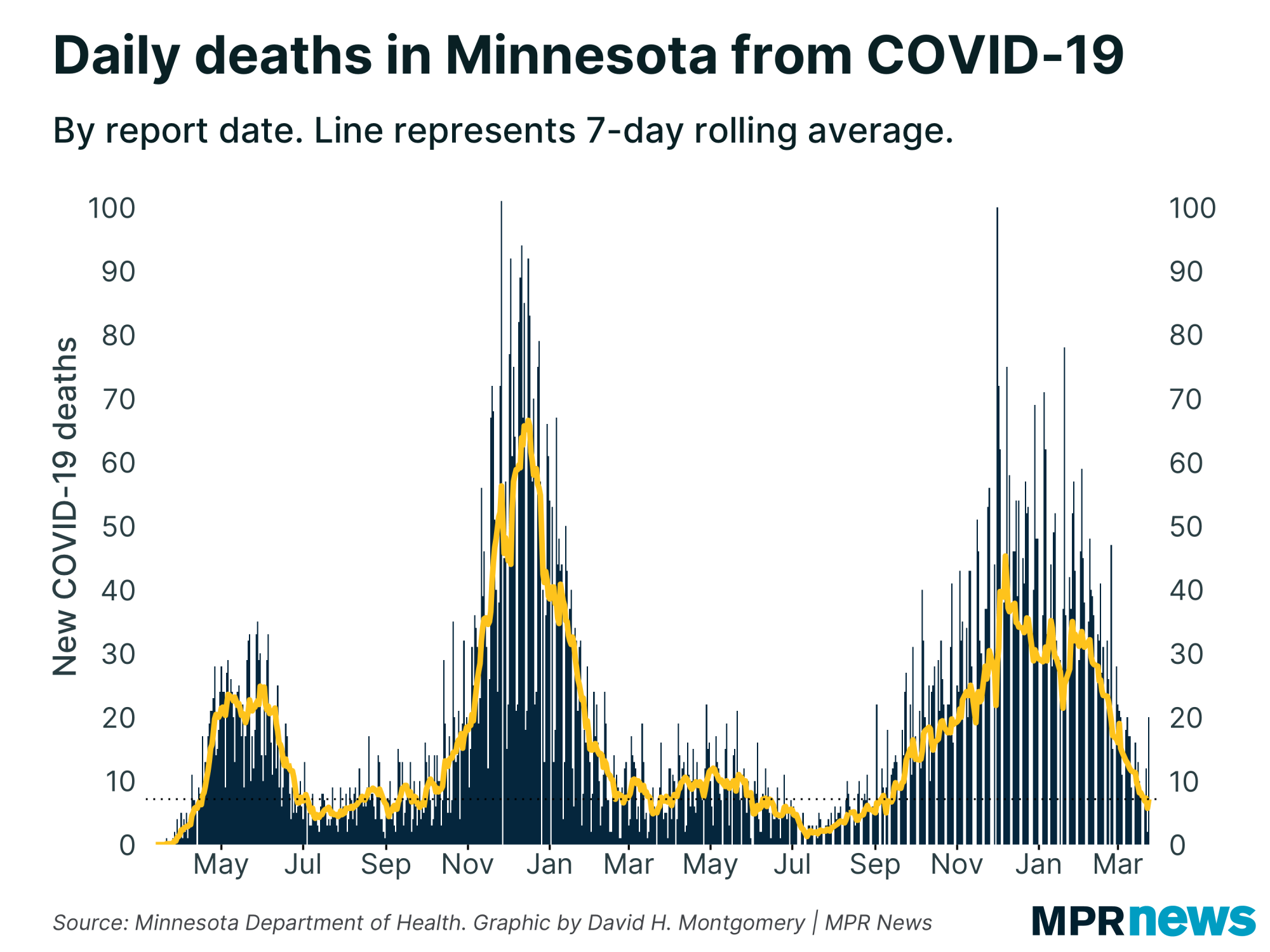
Generally, Minnesota remains better positioned now than during its fall and spring spikes. More than 73 percent of state residents age 12 and older have received at least one vaccination shot, with nearly 70 percent now completely vaccinated.
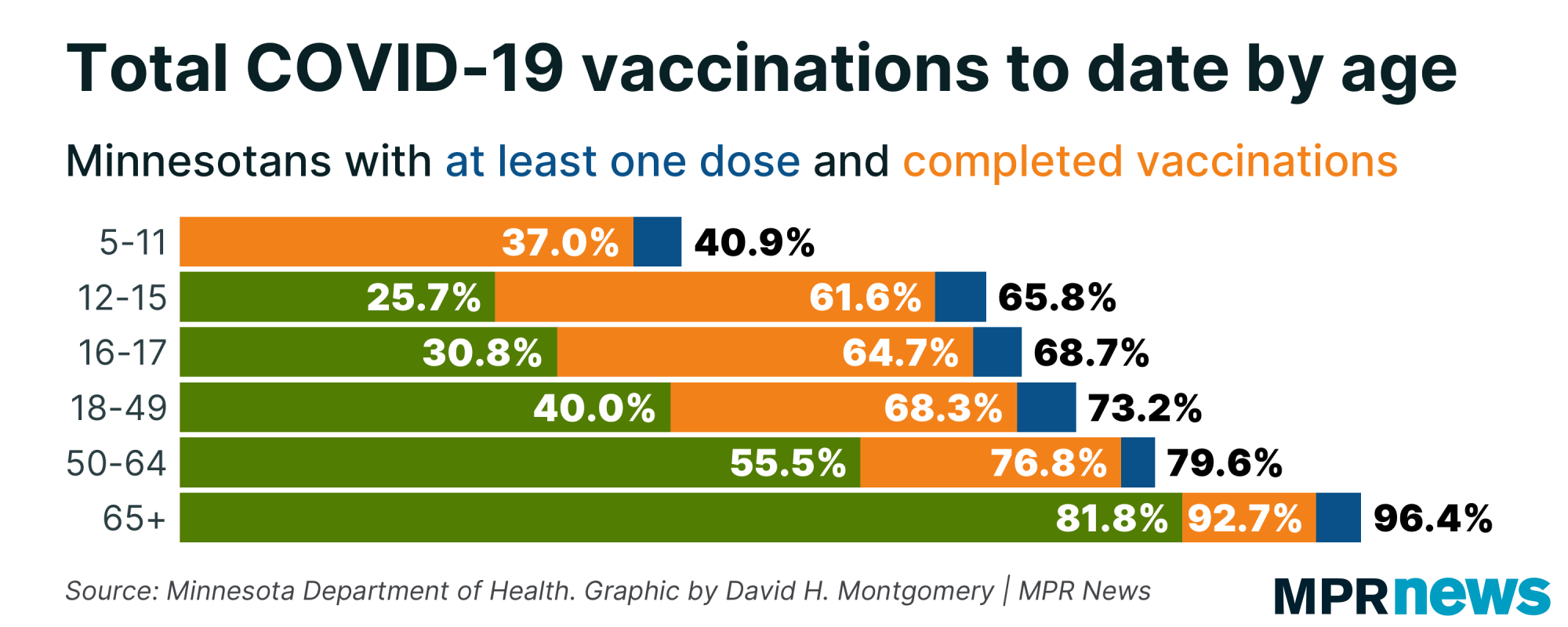
Breakthrough cases of the disease among fully vaccinated people remain very rare — about 1.4 percent of the more than 3 million Minnesotans who have completed their immunizations.
The struggle continues, however, to get more Minnesotans vaccinated, and wide gaps remain in the vaccination rates among regions and counties.
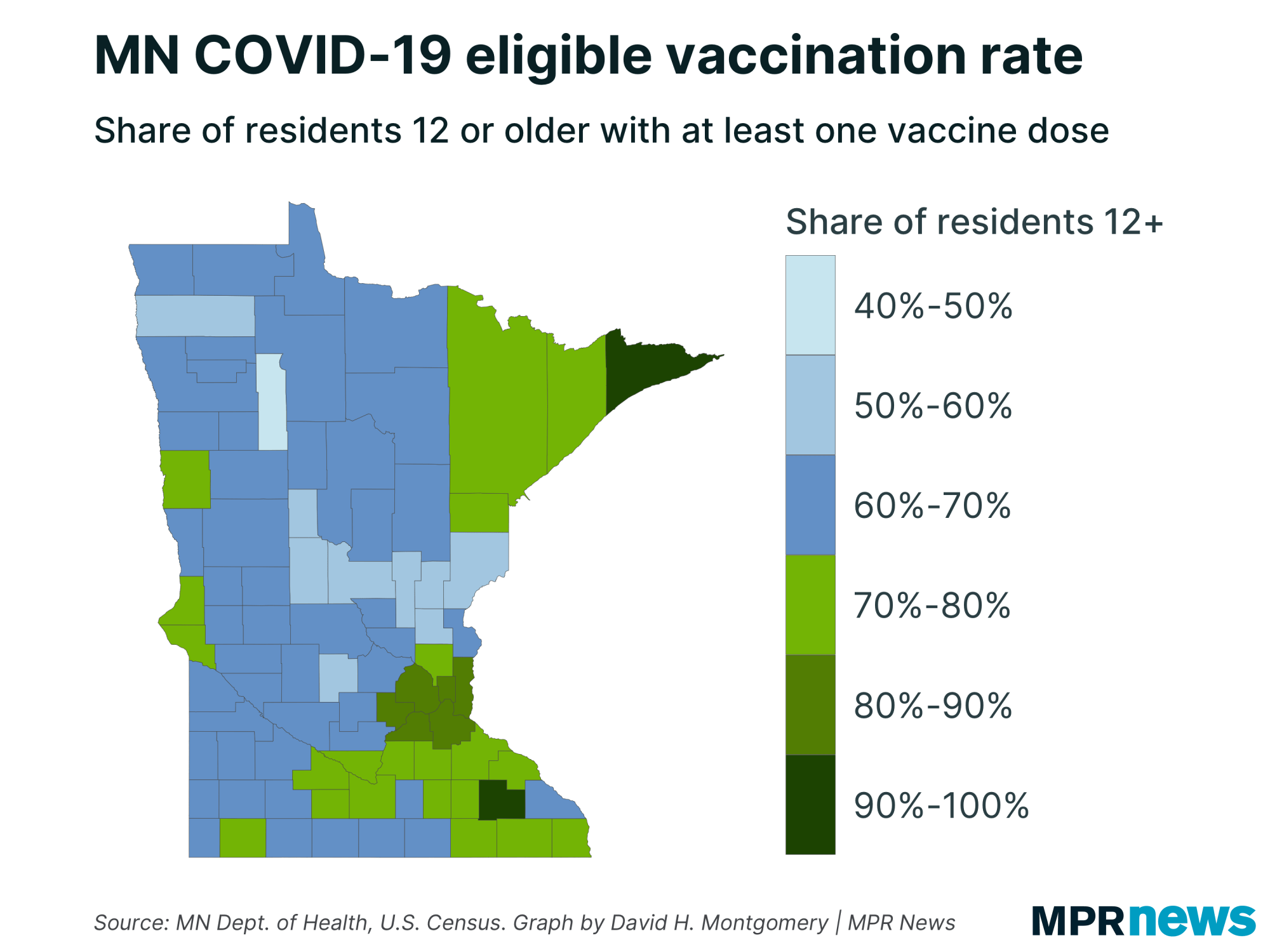
The latest data do show the state’s made progress getting people of color vaccinated. The vaccination rate state among the state’s Latino population rose significantly during the summer and fall.

Unvaccinated Minnesotans are 15 times more likely to be hospitalized, and they are 30 times more likely to die compared to vaccinated people, Minnesota Health Commissioner Jan Malcolm told reporters Wednesday.
The newly released data sets also show that regardless of age, the chances of being hospitalized or dying from COVID are higher for those who are unvaccinated, officials said.
Officials this week also said they’re preparing now to get COVID vaccines to about 500,000 Minnesota kids ages 5 to 11 expected to soon be eligible. They say vaccines will be available in pharmacies, and, likely, in schools, in addition to traditional health care clinics.


